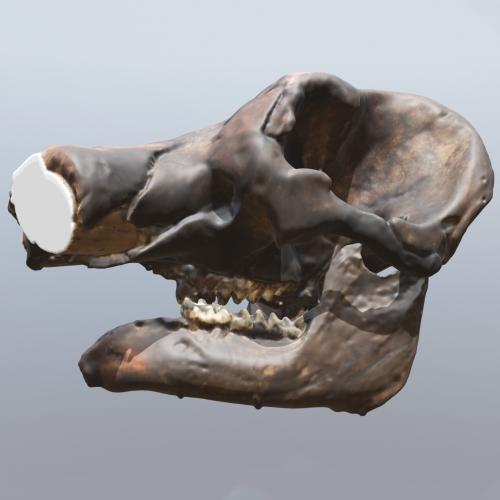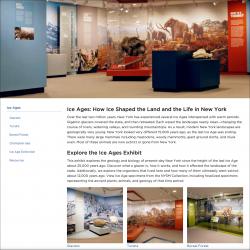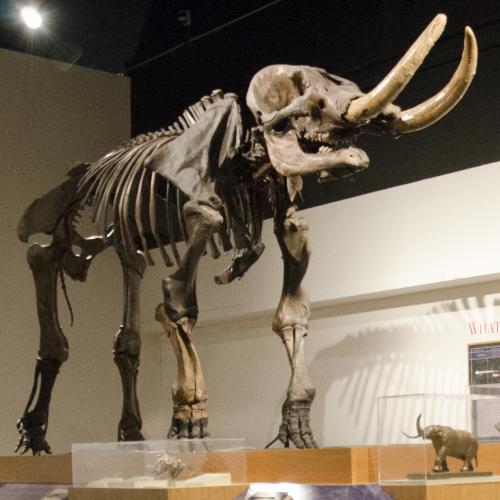
Ice Ages: How Ice Shaped the Land and the Life in New York
This long-term exhibition explores both the landscape and animals of the Pleistocene, or Ice Ages, of New York.
Over the last two million years, New York has experienced several Ice Ages interspersed with warm periods. Gigantic glaciers covered the state, and then retreated. Each wiped the landscape nearly clean—changing the course of rivers, widening valleys, and rounding mountaintops. As a result, modern New York landscapes are geologically very young.
As the last Ice Age was ending 15,000 years ago, many large mammals including mastodons, woolly mammoths, giant ground sloths, and musk oxen roamed the land. Most of these animals are now extinct or gone from New York. The exhibit features fossils of these Ice Age mammals including mammoths, caribou, moose, and whales.
View this Exhibit Online!
The online version of "Ice Ages" grants you direct access to each of the exhibit's galleries featuring recent research in glacial geology, images and 3D scans of Ice Age specimens including mastodons, woolly mammoths, and giant ground sloths, and additional resources related to the last Ice Age!
View 3D Models of NYSM Ice Age Specimens
In May, 2018, Dr. Bernard Means, a professor at Virginia Commonwealth University, scanned specimens from the NYSM vertebrate paleontology and archaeology collections in order to create high quality, three-dimensional digital archives of the specimens that can be used for research and virtual exhibition. View 3D Models here: https://sketchfab.com/virtualcurationlab/collections/new-york-state-museum





